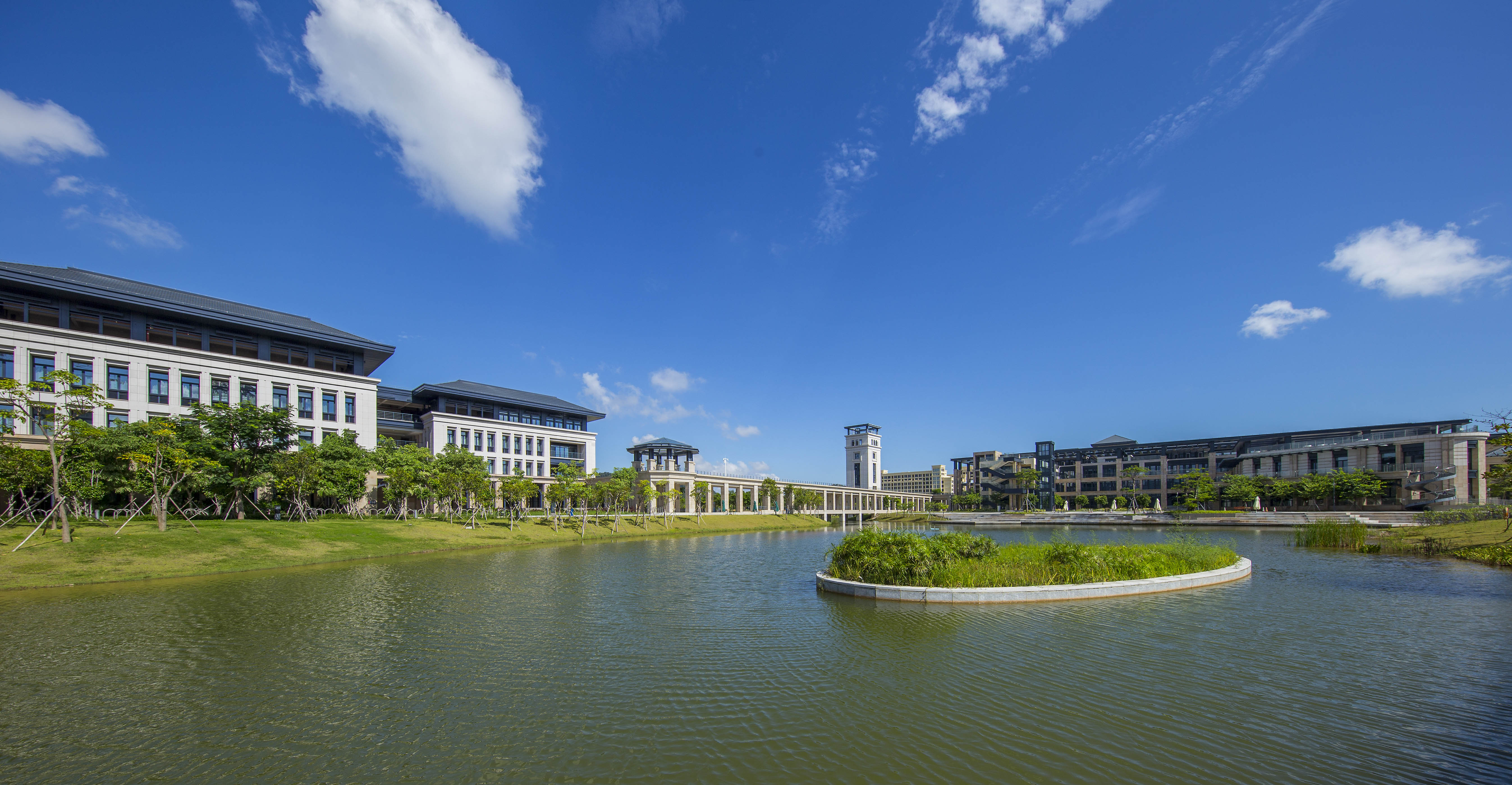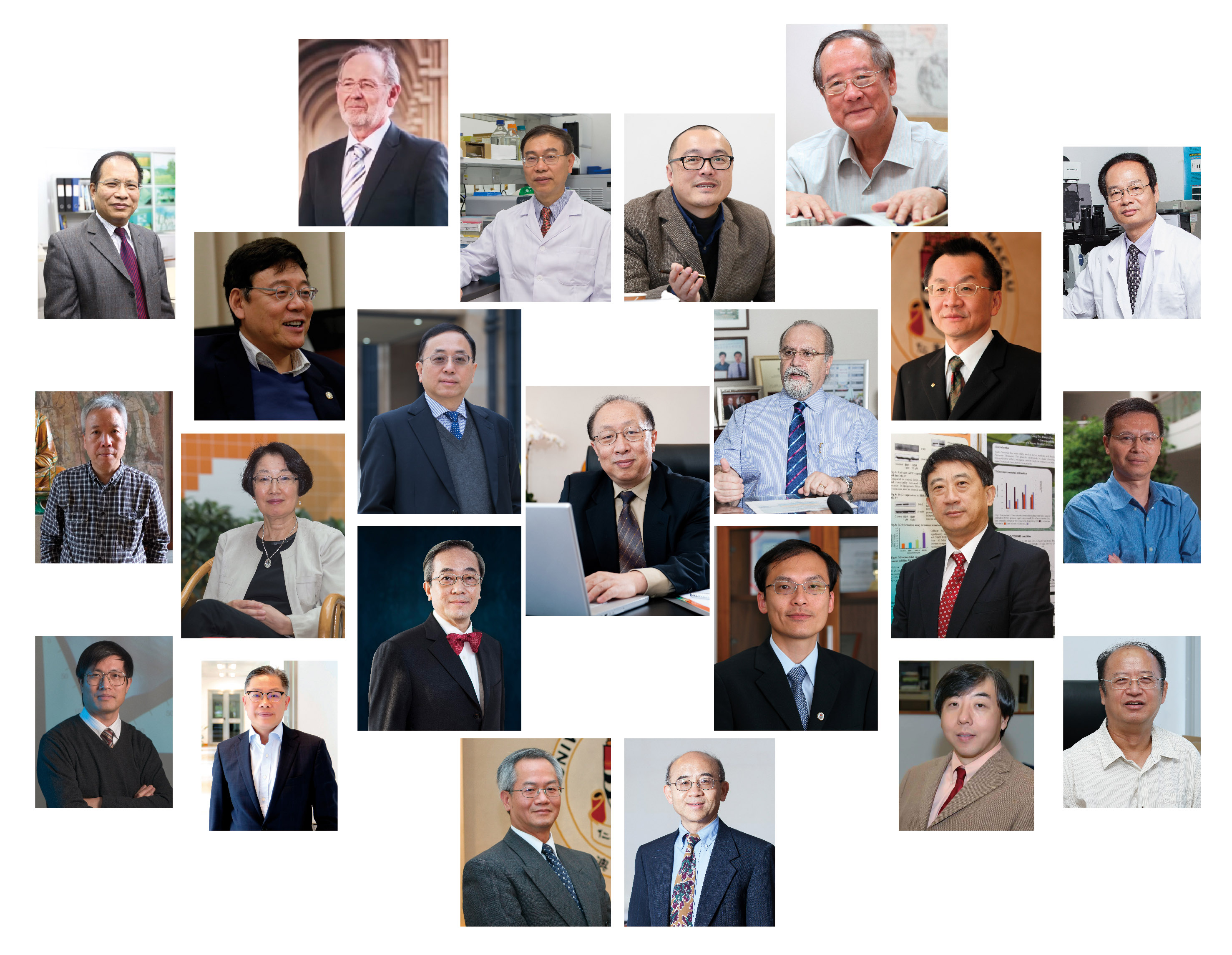Source: UMagazine
Mr Mei Yiqi once said: ‘ The greatness of a university lies not in great buildings, but in great professors.’ In 2014, the University of Macau (UM) relocated to a one-square-kilometre new campus that is approximately 20 times the size of the old campus. Seizing the unprecedented opportunity brought by the new campus, UM successfully recruited many world-renowned scholars in different fields. In addition to recruiting high-calibre professors, the university also regularly invites intellectual titans, including recipients of the Nobel Prize, Turing Prize, and Fields Medal, to give lectures on campus in order to broaden students’ horizons. In addition, the university has implemented a ‘4-in-1’ model of education to help students develop self-knowledge and self-confidence.
In this issue’s cover story, we discuss how UM produces students with multidisciplinary talent who work to develop ‘great knowledge’ and ‘great character’ by continuously reflecting, exploring, and innovating.
Create Better Conditions to Attract the Best People
UM’s relocation to the new campus in 2014 not only allowed the university to pursue its educational goals in a better environment, but also gave the university an advantage in recruiting high-calibre faculty. How does UM take advantage of the new environment and new educational philosophy to produce outstanding graduates?
Great Buildings
Thanks to the great support of the central government and the Macao government, UM in 2014 relocated to a new campus which covers one square kilometre, is about 20 times the size of the old campus, and has more than 60 buildings. Moreover, the new campus is physically located on Hengqin Island, Zhuhai, Guangdong province, but is under the jurisdiction of the Macao Special Administrative Region. After moving to the new campus, UM established a complete residential college system, which is also the largest such system in Asia. is residential college system and the unique ‘4-in-1’ education model enable the university to provide a multifaceted education to students so they can grow into well-rounded people with a global mindset.
With the move to the new campus, the university relocated the various existing faculties, including the Faculty of Arts and Humanities, the Faculty of Business Administration, the Faculty of Education, the Faculty of Law, the Faculty of Social Sciences, the Faculty of Science and Technology, and the Institute of Chinese Medical Sciences (ICMS). In addition, UM established a new faculty after relocation to the new campus, namely the Faculty of Health Sciences (FHS), with Prof Chuxia Deng, a leading Chinese American scientist in the field of life sciences, serving as the dean. Located in one of the Research Buildings, the FHS has several research centres and institutes focused on different areas of research, including the Cancer Centre; the Centre of Reproduction, Development & Aging; and the Institute of Translational Medicine. Currently it is preparing for the establishment of a research and training centre in precision medicine. There are also plans to establish a centre for contagious diseases in the future.
The two state key laboratories, namely the State Key Laboratory of Analog and Mixed-Signal VLSI (AMS-VLSI Lab), and the State Key Laboratory of Quality Research in Chinese Medicine (QRCM Lab), are also located in the Research Building. The research conducted in these two state key laboratories has reached the highest professional standards in the respective fields. The QRCM Lab was the first state key laboratory in the field of Chinese medicine approved by the Ministry of Science and Technology. So far, staff from the laboratory have published over 600 influential academic papers. The research centre for innovative drugs based on traditional Chinese medicines, jointly established by Peking University, Taiwan University, the University of Hong Kong, and UM, is also located in the QRCM Lab. The chips designed by the AMS-VLSI Lab now enjoy a good international reputation and impact, especially in the field of low-power, high-performance analog-to-digital converters. UM now ranks No 2 in the world in terms of the number of papers published in the IEEE Journal of Solid-State Circuits (JSSC) and at the IEEE International Solid-State Circuits Conference (ISSCC), ahead of many world-renowned universities and enterprises. The IEEE JSSC and the IEEE ISSCC are the most renowned in the field of integrated circuits and only accept results with successful measurements from fabricated silicon chips.
‘In 2015, one year after our state key lab moved to the new campus, our team achieved very good results,’ says Wei Jinchao, a doctoral student from the ICMS. ‘Our research output more than doubled that in 2013, the year we left the old campus.’
Prof Elvis Mak from the AMS-VLSI Lab says, ‘UM is as good as any first-rate overseas university, whether in terms of research ambience or research facilities. Many of our researchers have a nimble mind, creative ideas, and all the other qualities required for conducting high-quality scientific research. Over the past few years, our lab has progressed quickly. We have introduced chemical and biological technologies. We hope to build on what we have achieved in microelectronics and produce multidisciplinary research results with greater impact.
Great Professors
UM boasts a strong faculty team composed of internationally-recruited scholars who have gained international recognition for their academic and research achievements. Many of the faculty members are leaders in their areas of expertise, including Prof Wei Zhao and Prof Lionel Ni, both computer scientists and chief scientists for projects under the National 973 Programme; Prof Rui Martins, an expert on microelectronics; Prof Haydn Chen, an expert on materials science; Prof Philip Chen, an expert on intelligent computer systems; Prof Chuxia Deng, an expert on cancer research; and Prof Yang Yi, a leading authority in Chinese literary studies.
UM has also invited renowned experts and scholars in different fields to serve as masters of its residential colleges. These include Prof Liu Chuan Sheng, an authority on plasma physics; Prof Chung Ling, a renowned writer; Dr Peter Yu, an expert on comparative education and student a‑ airs; Prof David Pong, a veteran historian; Prof Yip Ming Chuen, an expert on the mechanics of materials; Prof De Bao Xu, a renowned linguist; Prof Kevin Thompson, a renowned musician; Prof Kenneth Leung, an expert on communication law and ethics; and Prof Iu Vai Pun, an expert on structural mechanics. Under the leadership of these masters, the colleges have established their own unique cultures.
In addition to recruiting masters in various fields, UM also regularly invites world-renowned scholars to give lectures on campus. Since 2014, more than ten recipients of the Nobel Prize, Turing Award, and Fields Medal have gaven lectures at UM to share the latest research trends and new discoveries. These guests have included Prof Chen-Ning Franklin Yang, Prof Mo Yan, Prof Shing-Tung Yau, Prof Mori Shigefumi, Prof Mario Capecchi, Prof Ada Yonath, Prof Aaron Ciechanover, Prof Carl Edwin Wieman, Prof Robert F Engle, and Prof Joseph E Stiglitz.
Wong Hang Heng is a postdoctoral research fellow who works with Prof Chuxia Deng. She chose to join UM because she knew Prof Deng to be a renowned expert on cancer research, and she hoped to join his team. ‘Over the past three years, I have learned a lot about cancer research, especially research on breast cancer,’ says Wong. ‘I have also learned a lot of valuable experience from Prof Deng, including how to develop my career.’
Fu Yinchang, a doctoral student of Chinese literature, studies with Prof Yang Yi, a leading authority on Chinese literary studies who is hailed as one of China’s best literary historians in the 21st century and one of the most creative and influential scholars in contemporary China. ‘What I have learned the most from Prof Yang are his meticulous attitude towards academic research and his way of thinking,’ says Fu. ‘He often tells me that nothing is difficult to the person with the right attitude. With the right attitude, one can accomplish anything.’
Great Knowledge and Great Character
In addition to ‘great buildings’ and ‘great professors’, UM has also established a new educational system. In 2014, UM began implementing a complete residential college system, which is also the largest such system in Asia, to complement the academic faculty system. The university hopes that the residential colleges and faculties can combine to serve as the vehicles for implementing the ‘4-in-1’ education model, which consists of discipline-specific education, general education, research and internship education, and community and peer education, so as to provide a multifaceted education to students. Apart from classroom instruction, faculty members also participate in student activities outside the classroom. As Rector Wei Zhao often says, ‘ rough community and peer education implemented through the residential college system, we hope to help our students develop self-knowledge and self-confidence, because these are the source of creativity. We want our graduates to possess not only extensive knowledge (great knowledge) but also a noble mind and cultured behaviour (great character).
Rex Fung, a member of Chao Kuang Piu College, has been an active participant in campus activities over the past four years. ‘I have participated in various activities both inside and outside our residential college. They have broadened my horizons and helped me make new friends,’ he says. ‘The college provides opportunities for us to spend time with other students so we can become closer to each other. Living in the college allows us to enjoy campus life more.’
Sophie Chen, a member of Moon Chun Memorial College, believes that the musical ambience in the college has improved her own taste in, and knowledge of, music. ‘Our college master Prof Kevin Thompson is a world-class musician,’ says Chen. ‘He has fostered a very good musical ambience in the college, which taught me how to appreciate the beauty of music and other art forms, and I think this will in turn have a very positive influence on my character development.
Liu Hong Cheng, a member of Cheng Yu Tung College, says, ‘Our college attaches great importance to helping us cultivate a reading habit. We are encouraged to read literature to improve our appreciation of literary works. Literature can help foster great character traits, and when you have great character traits, you know how to better handle interpersonal relationships, which will benet those around you. It will also increase your interest in studies.


